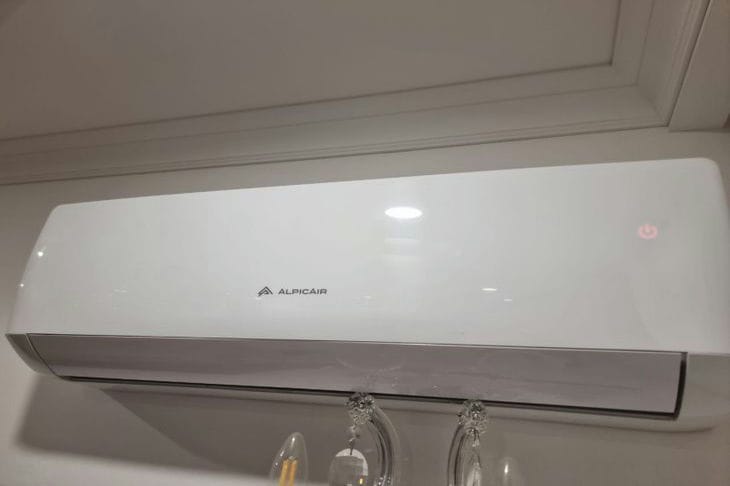It is important to understand that air conditioners have become an integral part of modern life, especially in conditions of high temperatures.
However, there is much controversy surrounding their use regarding the health impact.
Myth 1: Air conditioners cause colds

One of the most common myths is that air conditioners directly cause colds. In fact, colds are caused by viruses, not cold air.
However, excessive cold and dry air, which can be caused by a poorly functioning air conditioner, can actually increase susceptibility to infections by weakening the lining of the nose and throat.
Fact 1: Improved air quality
Modern air conditioners often come equipped with filters that remove dust, allergens, and other pollutants from the air. This can greatly improve indoor air quality, especially for people with allergies or asthma.
Myth 2: Air conditioners are a source of bacteria and mold
Another common myth is that air conditioners can be a source of bacteria and mold.
In fact, this can only happen if the device is not properly cared for and maintained.
If the filters and air conditioning system are regularly cleaned and maintained, the risk of mold growth and bacteria spread is minimal.
Fact 2: Problems with skin and mucous membranes
Using an air conditioner can lead to dry skin and mucous membranes, especially if the air in the room is too dry.
It is recommended to use humidifiers or regularly ventilate the room to maintain an optimal level of humidity.
Myth 3: Air conditioners increase the risk of arthritis
There is a misconception that frequent exposure to air conditioning can cause arthritis. There is no scientific evidence to support this theory. Arthritis is associated with inflammation in the joints and is not directly related to the use of air conditioners.
Fact 3: Regulate Temperature to Prevent Heat Stress
Air conditioners play a key role in preventing heat stress, especially during the hot summer months.
Maintaining a comfortable temperature in the room not only provides comfort, but also prevents the body from overheating, which is especially important for children, the elderly and people with chronic diseases.
Myth 4: Air conditioners weaken the immune system
Another myth is that prolonged exposure to air conditioning weakens the immune system. There is no scientific evidence to support this claim.
The immune system can be weakened by many factors, including poor diet, stress, lack of sleep and a sedentary lifestyle, but not by direct exposure to air conditioning.
Fact 4: Reducing humidity levels can prevent the spread of some viruses.
Air conditioners reduce the level of humidity in a room, which can be useful in preventing the spread of certain types of viruses, including the flu.
Flu viruses spread more quickly in high humidity and temperatures, so air-conditioned spaces can reduce the risk of infection.
Myth 5: Frequent use of air conditioning leads to chronic respiratory diseases.
There is an opinion that constant exposure to air-conditioned environments contributes to the development of chronic respiratory diseases.
However, these diseases are usually associated with other factors such as smoking, air pollution, occupational hazards, and not directly with the use of air conditioners.
Fact 5: Proper use and maintenance
Proper use and regular maintenance of air conditioners are critical to preventing possible negative consequences.
Regular cleaning and replacement of filters, maintaining recommended temperature conditions and humidity levels help ensure safety and comfort, minimizing health risks.
In conclusion, air conditioners can have both positive and negative effects on health, depending on how they are used and maintained.
Debunking myths and being aware of the actual consequences of their use helps people make informed decisions about how best to use these devices for comfort and health.
Earlier we talked about improving digestion .








